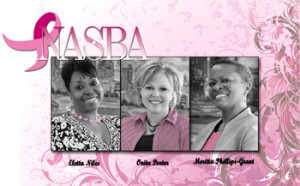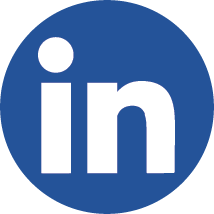 Through lunch-and-learn sessions, informational emails, participation in 5K fundraising runs and much more, NASBA has been working to highlight breast-cancer awareness throughout October.
Through lunch-and-learn sessions, informational emails, participation in 5K fundraising runs and much more, NASBA has been working to highlight breast-cancer awareness throughout October.
It's part of NASBA's effort to join in the national Breast Cancer Awareness Month, and to make sure that employees know about the importance of screenings and other preventive measures. NASBA also makes sure that employees are aware of how their benefits cover those treatments and others, and what options are available should someone receive a diagnosis that requires treatment and time away from work.
"We try to make sure that all our employees know that we are here for them the same way they are here for us," says Angel Lunn, NASBA Chief People Officer. "There are a lot of options to consider if you're going to be out of work for an extended period, or may need to be taking regular time off for treatments. We work with any employee who's facing something like this to make sure they don't have to worry about work-related issues while they're focused on recovery."
But no one can do a better job of talking about the disease, and how to survive and thrive before, during and after treatment, than a survivor. NASBA has a few of these "women warriors" in-house, and they've been inspiring employees and others with their stories of hope and strength.
For Eletta Niles, scheduling her annual mammogram meant early detection and treatment. A biopsy was followed by a lumpectomy, but she needed further treatment. After exploring options that included a radical mastectomy, chemotherapy and reconstruction, she chose the course of action she felt was best for her.
"This is why I am such a firm believer in yearly physicals and mammograms, as well as self examinations, especially if you have a family history of breast cancer," Niles says. "Had I not had this mammogram, it would not have been caught early, and my treatment and outcome could have gone a very different way."
Meritta Grant also found out about her cancer during an annual mammogram, and is still going through follow-up treatment after successful surgery. She too has become an advocate for preventative treatment.
"Do not neglect to get a yearly wellness mammogram — and start early," Grant tells women. "I would suggest from age 30 to 35, especially after your first child. Many breast cancers start in the milk ducts."
For those who have received a cancer diagnosis, she advocates listening to your doctor, "but do not hesitate to ask questions. The more you understand what your body is going through, the less scary the experience will be. The less paralyzed you are by fear and the harder you will fight. The harder you fight, the greater an example you will be for your daughters and other women. They will draw encouragement from your display of strength."
Denise Hanley is also a great example of how important yearly mammograms are and how genetics aren't everything when it comes to breast cancer. Prior to her annual exam, Hanley experienced no symptoms, but her doctor insisted on a mammogram because she hadn't had one in over five years and was 50 years old. The results of the routine exam came as a surprise to Hanley.
"I was shocked when the doctor called to tell me that the needle biopsy was positive," she says. "I am the first one in my family (mother’s and father’s side) to have breast cancer. We had other cancers in the family, but not breast cancer. That is why I had waited to so long before worrying about getting regular mammograms."
Onita Porter's breast cancer came in her late 30's just as she was prepping for her third section of the Uniform CPA Examination. Her diagnosis threatened to derail her plans to enter the corporate world after going back to college and pursuing a master's degree in accounting.
After finding a tumor in her left breast, Porter scheduled a doctor's appointment and had her first mammogram. A biopsy was set for the next day, but instead of furthering her CPA career, she learned she had cancer and began a process that would stretch out over the next three years.
"From 2007 to 2010, my life revolved around doctors," she says. "I set up imaginary 'finish lines' for the process, only to be disappointed time and time again because things didn't turn out as planned. So many doctor visits, complications and detours in the process … it's so hard to explain without sounding like a medical chart. To put it simply, if it could happen to me, IT DID, a fact that led to depression and loss of self-worth. I had always been a high achiever and to be reduced to a person who couldn't remember people's names, events or facts was quite humbling and devastating to me."
Through hard work and perseverance, she studied for — and passed — her last two sections of the CPA exam. Today she says, "I feel healthy and strong, and I have a job I love that allows me to travel to lots of interesting places, meet new people and to grow and stretch in ways that are exciting and challenging. This has been my best year yet!"
All four women are quick to point out that they received unwavering support from faith, families and friends. They credit that with helping the healing process, plus being willing to ask questions every step of the way, to be open-minded and to study every aspect and angle of their journey toward wellness.
And along the way, they got plenty of support from their NASBA family.
"NASBA was great," Niles recalls. "My coworkers prepared 'Sunshine Baskets' of books, candy, all kinds of things to pamper me. I took something out of the basket every day and it lasted over a month! Friends from work also came to visit me many times when I was in and out of the hospital with the surgery, reconstruction and recurring infections that arose from the surgery."
Read more about these ladies journeys through their personal stories:
> Eletta Niles
> Meritta Grant
> Denise Hanley
> Onita Porter






